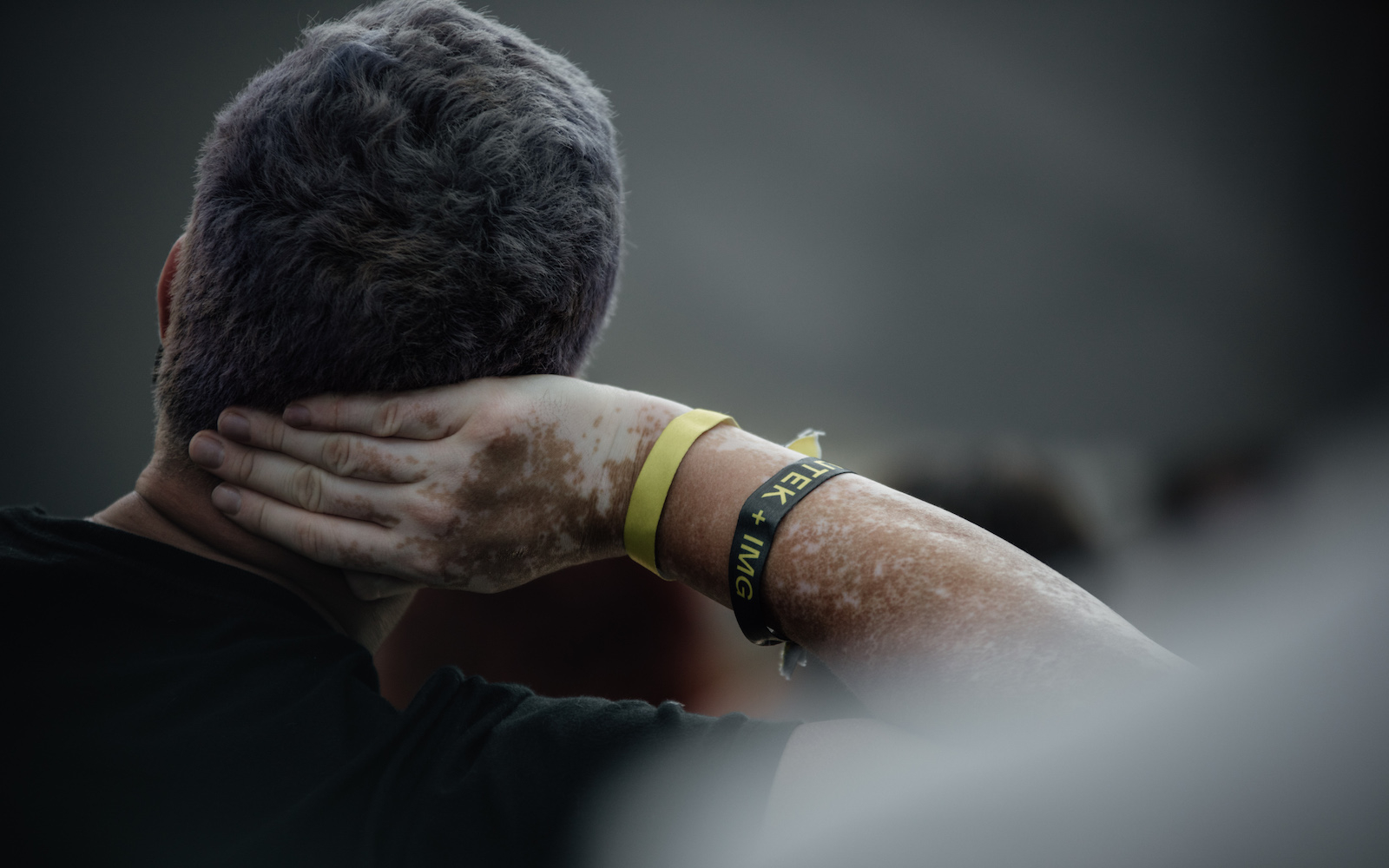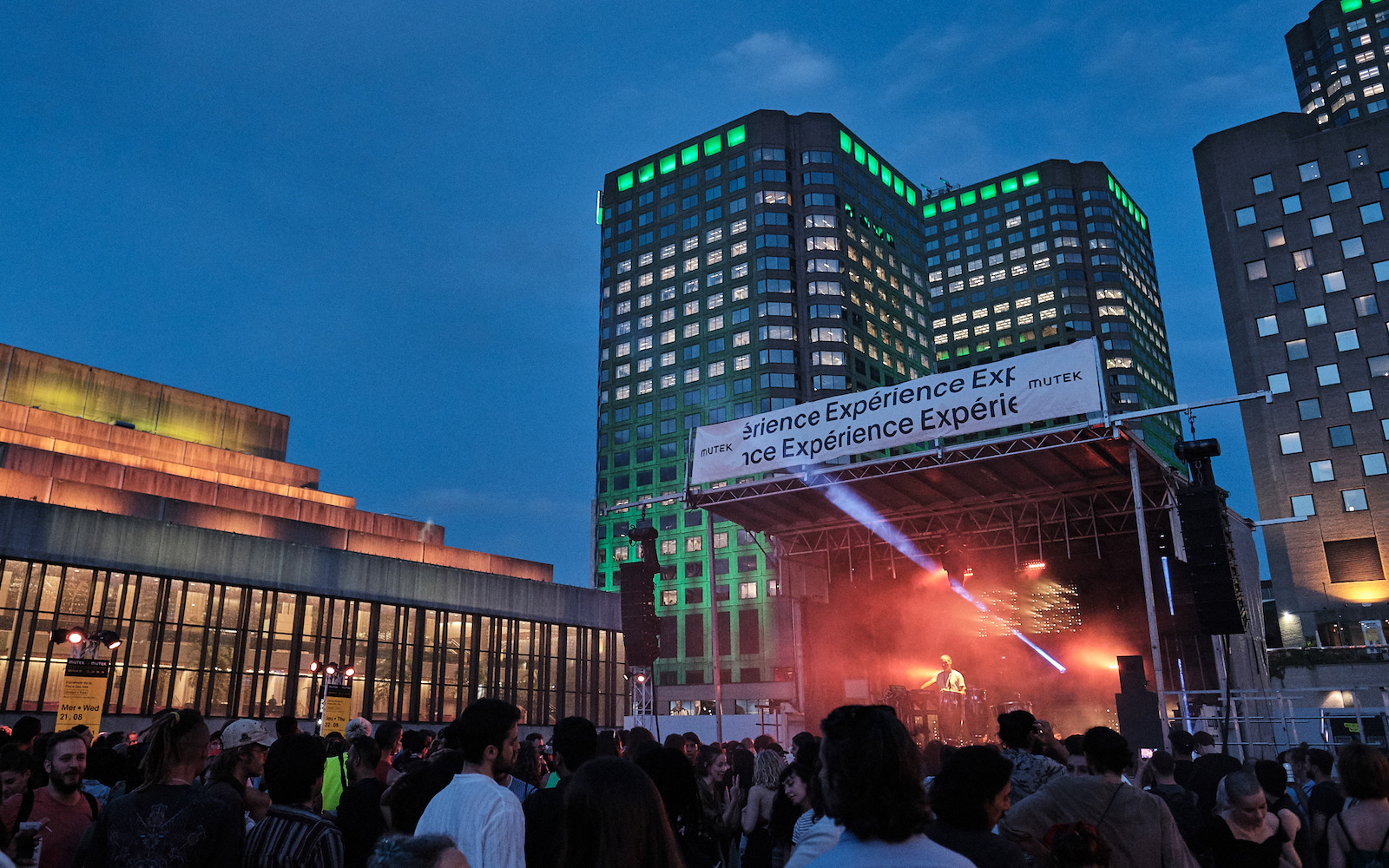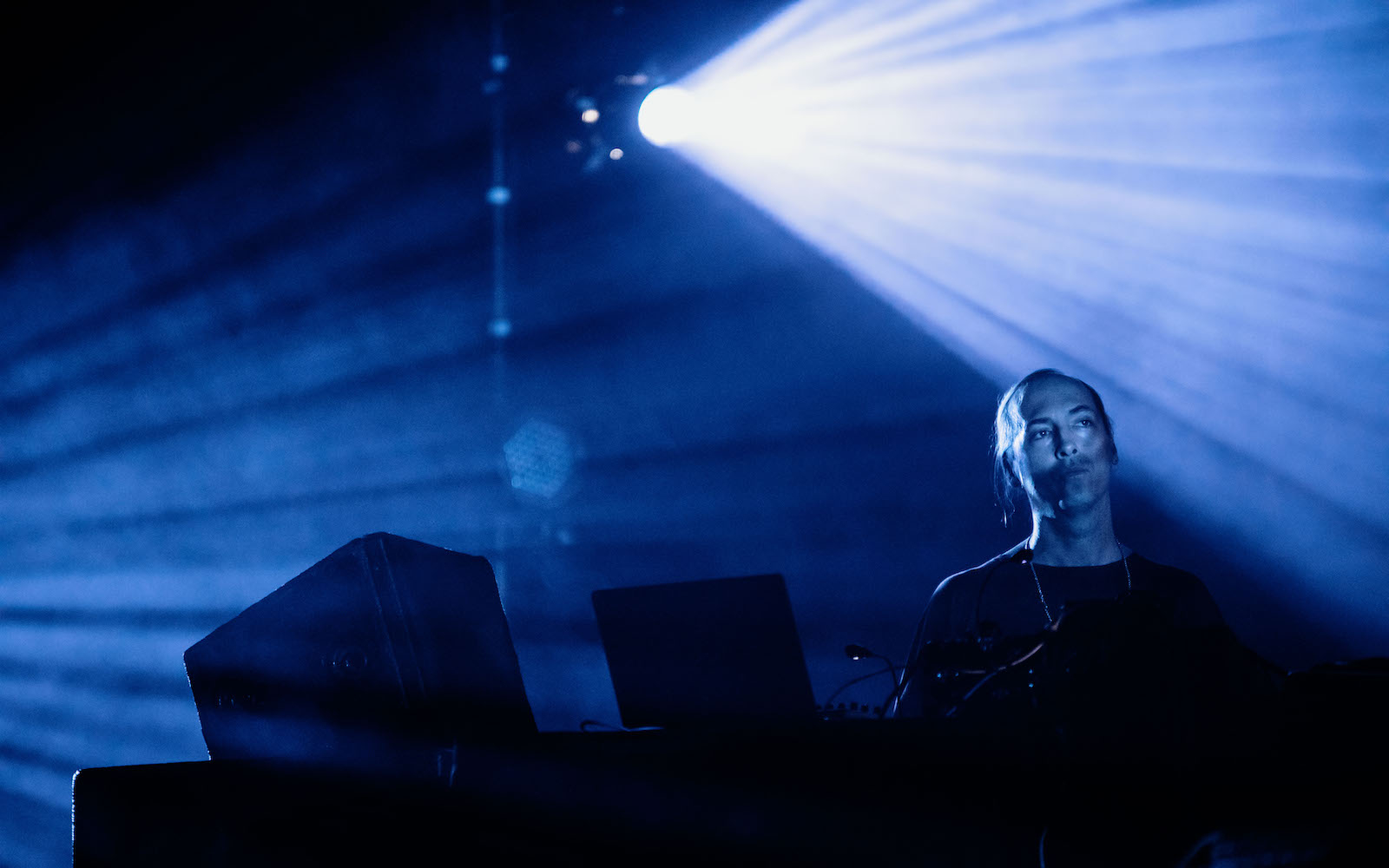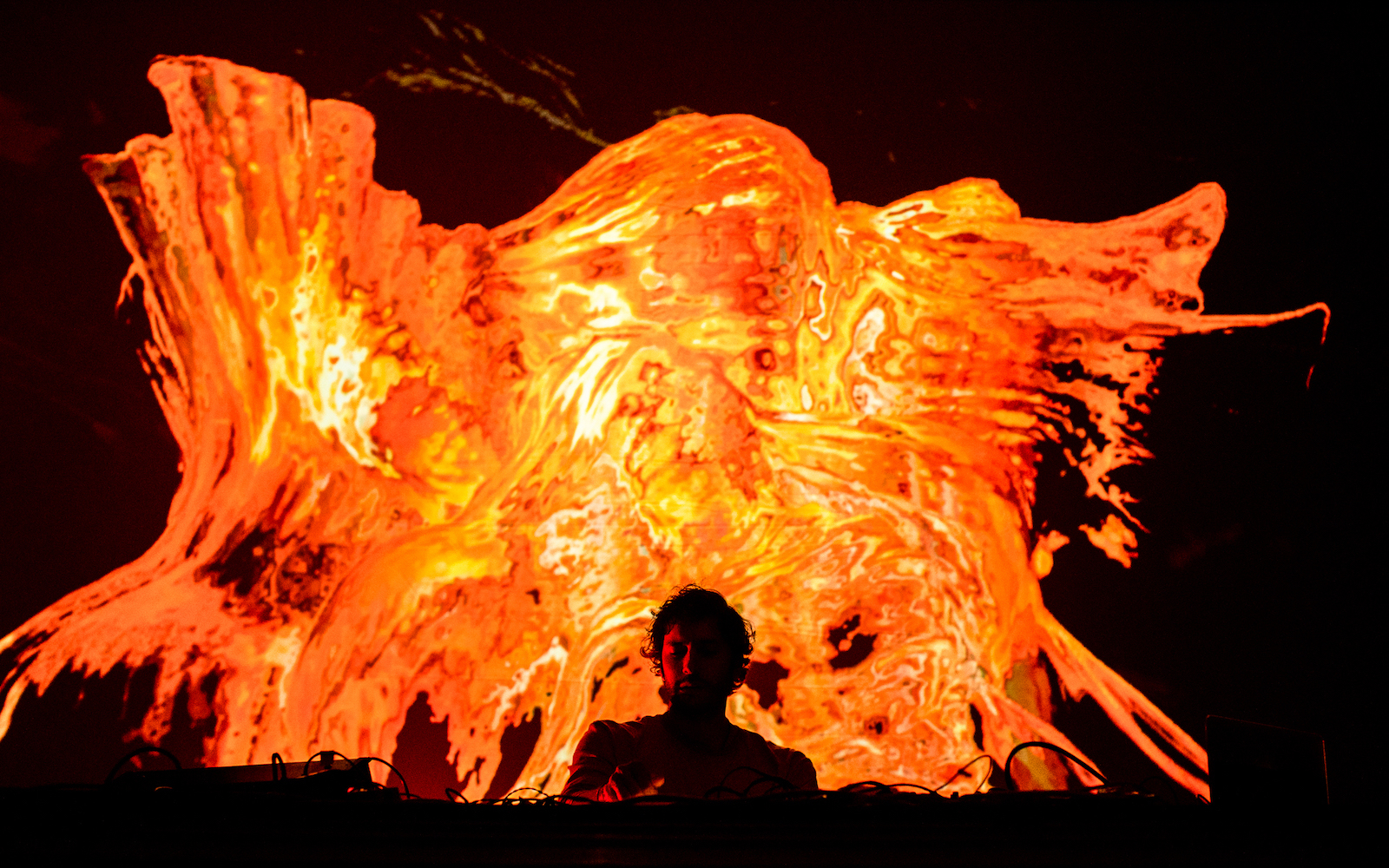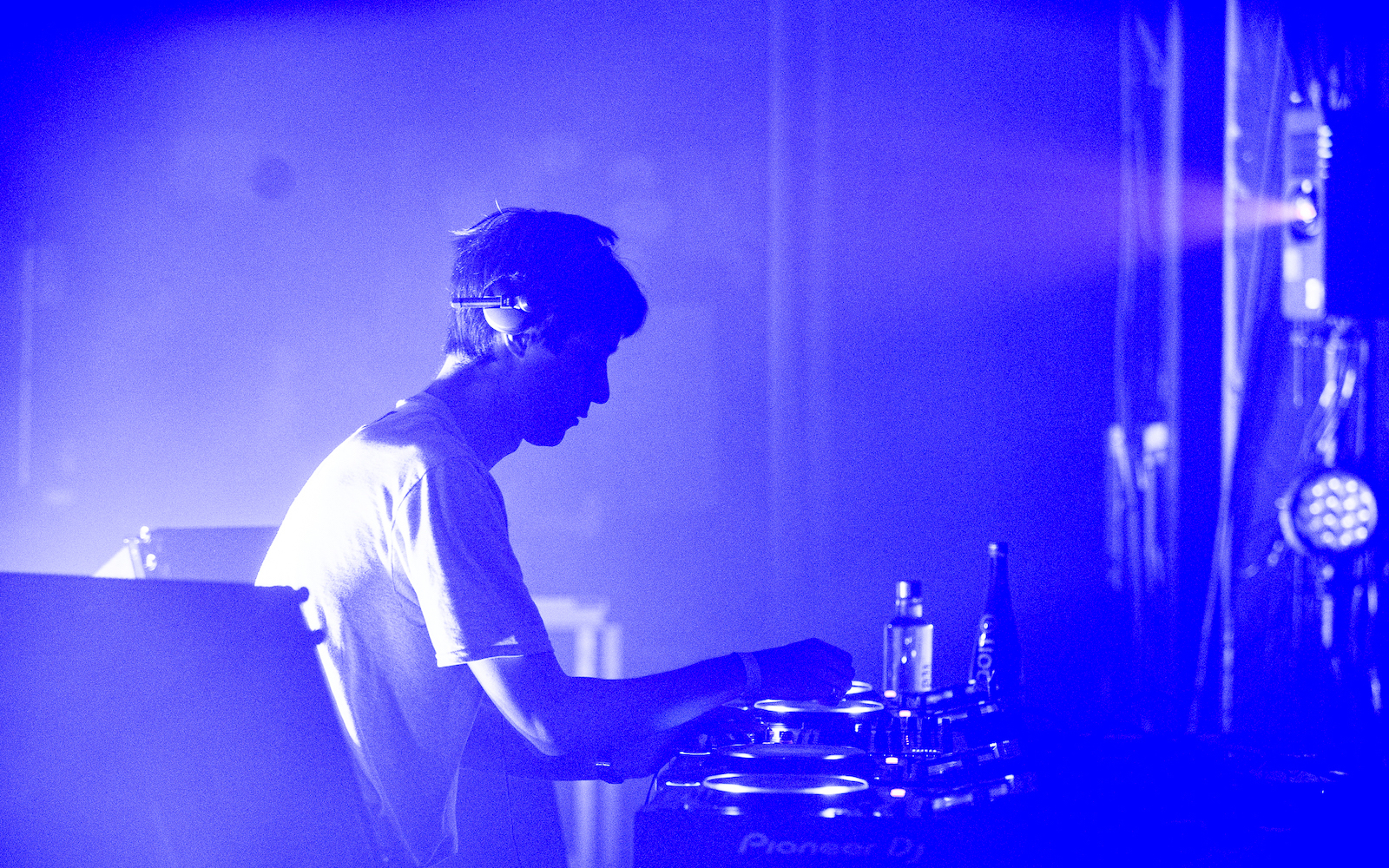Photo credits /
Myriam Ménard - Lead, Hand, Tim Hecker, Circle Of Live Talk
Bruno Destombes - Monolake, Project Pablo, Nicola Cruz, Call Super
Vivien Gaumand - Domenique Dumont, fuse*
Ashutosh Gupta - Beta Librae, Priori
MUTEK 2019: Five key performances
- 掲載日Aug 29, 2019
- 20 years of a festival giant, with standout performances from Monolake, Beta Librae and Project Pablo.
- シェアする
- MUTEK celebrated its 20th anniversary this year, which is some feat for an electronic music festival—only a few can claim such history. It's survived for so long by staying fiercely true to itself, focussing intently on live acts and visual art, as well as offering everything from installations, club nights and theatre performances to free outdoor dance parties. For its 20th anniversary, the programme was beefed up to six days, with plenty of additional workshops, talks and activities. It was hard to walk around Downtown Montreal without bumping into someone from the dance music industry.
The festival's 20th edition felt introspective. MUTEK favourites such as Monolake, John Tejada and Andreas Tilliander all put in appearances, plus classic Canadian artists and MUTEK staples like Akufen, Mathew Jonson, Loscil and Tim Hecker. It felt like an especially MUTEK-y MUTEK, with a wide spread of experimental music from artists both obscure and revered. There were joyous moments, too, like the outdoor Expérience parties or Call Super's closing set on Saturday night. This year also potentially signalled the end of an era: it was the final edition with long-time curator Patti Schmidt—herself a legend of Canadian electronic music—who bid farewell with a celebratory festival that met every expectation you could have.
Here are five key performances from MUTEK 2019.
Monolake Robert Henke, joined by the visual artist Diagraf, opened MUTEK by playing a surround-sound set inside a giant pyramid on the waterfront. (The temporary structure was built by the Cirque Du Soleil cofounder Guy Laliberté.) It spoke to the importance of MUTEK that it secured a venue of this size and scale. The show felt truly grandiose, like a more impressive version of the 3D installations and performances at the Satosphére dome that MUTEK has used for years. Henke's music was as usual—broken techno and bursts of melody, delivered with technological flair—but it really came alive when paired with the visuals, which varied from abstract projections to cascades of numbers mapped across the pyramid's three walls. Rods were suspended from the ceiling and moved up and down, adding a tangible 3D touch. It was one of the most visually impressive things I've ever seen at a music festival.
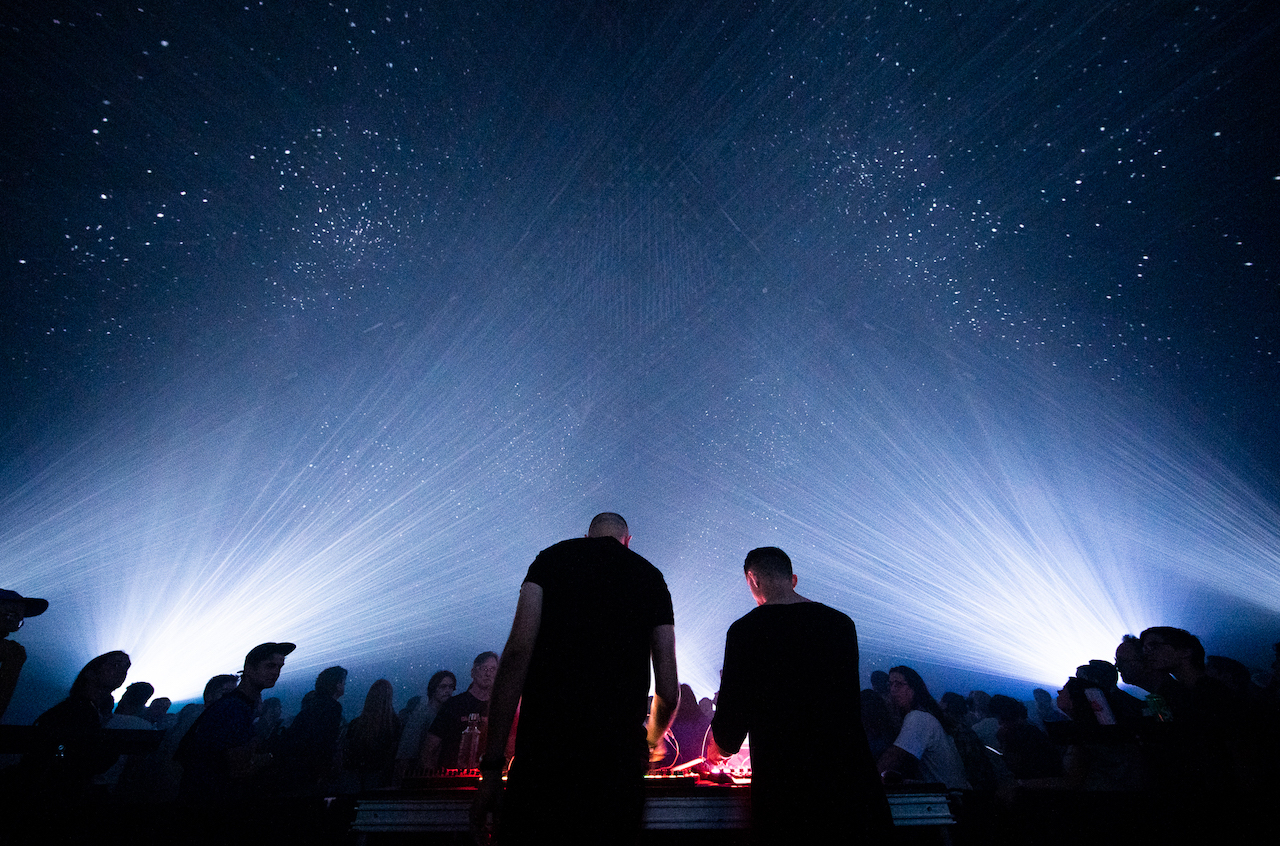 Domenique Dumont Booking Domenique Dumont showed MUTEK at its best. Here's an act with only a small following outside Europe, playing one of the biggest electronic festivals in the world. Anete Stuce played keys and sang while Artūrs Liepiņš accompanied on guitar, synths and sequencer. The duo's bubbly pop—like a blend of dub, tropicália and chanson—was ideal for a chill Tuesday night. Stuce's energy was especially infectious, the singer smiling as she sang in her distinctive high register. The duo ran through most of the material from their two EPs, stretching out songs like "Comme Ça" and "L'Esprit de l'Escalier," teasing the instrumental with some improvisational jamming before diving back into the song. It was a trick they repeated more than once, to great effect.
Domenique Dumont Booking Domenique Dumont showed MUTEK at its best. Here's an act with only a small following outside Europe, playing one of the biggest electronic festivals in the world. Anete Stuce played keys and sang while Artūrs Liepiņš accompanied on guitar, synths and sequencer. The duo's bubbly pop—like a blend of dub, tropicália and chanson—was ideal for a chill Tuesday night. Stuce's energy was especially infectious, the singer smiling as she sang in her distinctive high register. The duo ran through most of the material from their two EPs, stretching out songs like "Comme Ça" and "L'Esprit de l'Escalier," teasing the instrumental with some improvisational jamming before diving back into the song. It was a trick they repeated more than once, to great effect.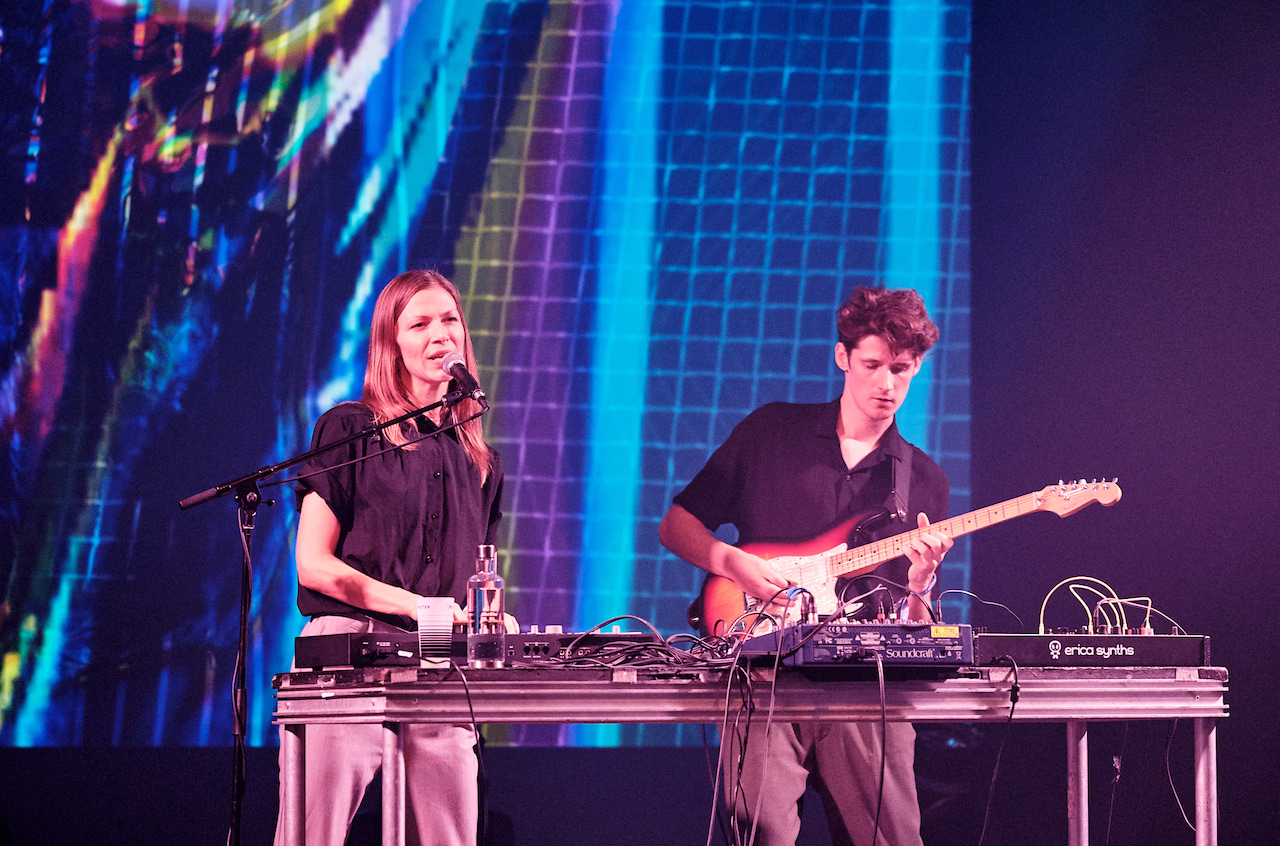 Project Pablo In 2016, Patrick Holland played one of my favourite-ever MUTEK sets, back when he was still a fresh name on the circuit. (He was given the Sunday night wind-down slot.) This year was different. By the time he started playing at the cavernous MTELUS venue in the early hours of Sunday morning, the crowd must have reached near 1000 people, almost all of whom were screaming and shrieking from the first note. He performed a live set of brand new material built around his latest release. The sound centred on techno, with left turns into trap, two-step and other rhythms. It felt like a logical evolution for a producer who has always written songs with melodies at the forefront. This was big-room dance music with heart. The sounds were polished, the transitions were tight and the flow was perfect. Back in 2016, I couldn't have imagined Holland commanding a room as vast as MTELUS, but this time it felt like he was born for it.
Project Pablo In 2016, Patrick Holland played one of my favourite-ever MUTEK sets, back when he was still a fresh name on the circuit. (He was given the Sunday night wind-down slot.) This year was different. By the time he started playing at the cavernous MTELUS venue in the early hours of Sunday morning, the crowd must have reached near 1000 people, almost all of whom were screaming and shrieking from the first note. He performed a live set of brand new material built around his latest release. The sound centred on techno, with left turns into trap, two-step and other rhythms. It felt like a logical evolution for a producer who has always written songs with melodies at the forefront. This was big-room dance music with heart. The sounds were polished, the transitions were tight and the flow was perfect. Back in 2016, I couldn't have imagined Holland commanding a room as vast as MTELUS, but this time it felt like he was born for it.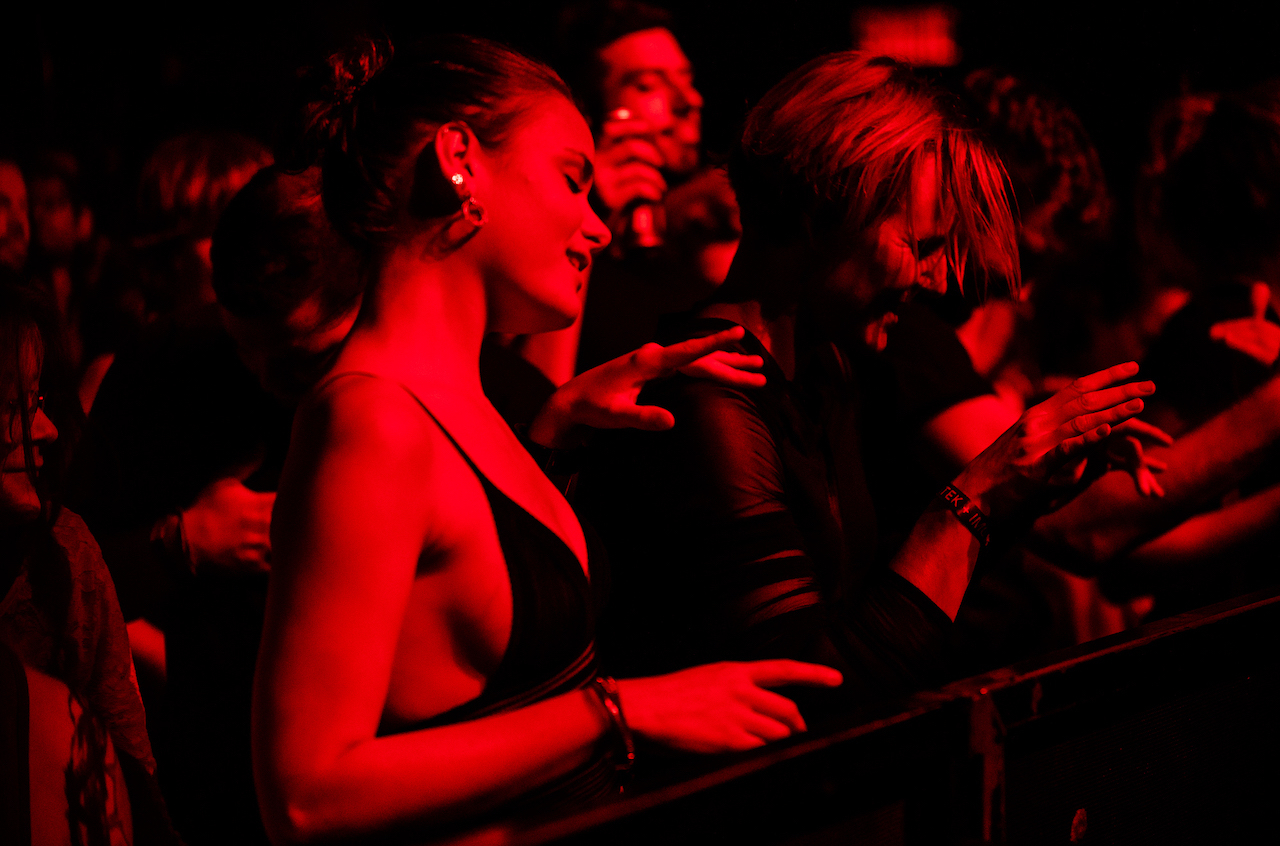 Beta Librae Beta Librae played on the festival's final night in Studio 2 at Les 7 Doigts. It was a small room with a feverish energy and a dedicated coterie of fans who were there to see a handful of Canadian acts in addition to the New York artist, whose breakbeat techno stood out—after Khotin's beautiful ambient and dub-influenced techno from Persuasion—like a jack-in-the-box. Her live set was exciting for the same reason as her records: she's not just doing pastiche or anything that slots in with the current breakbeat revival. Instead, the rhythms skipped and slid. The melodies were rich. All of it moved with a bounce somewhere between jungle and garage, easy to love yet never predictable.
Beta Librae Beta Librae played on the festival's final night in Studio 2 at Les 7 Doigts. It was a small room with a feverish energy and a dedicated coterie of fans who were there to see a handful of Canadian acts in addition to the New York artist, whose breakbeat techno stood out—after Khotin's beautiful ambient and dub-influenced techno from Persuasion—like a jack-in-the-box. Her live set was exciting for the same reason as her records: she's not just doing pastiche or anything that slots in with the current breakbeat revival. Instead, the rhythms skipped and slid. The melodies were rich. All of it moved with a bounce somewhere between jungle and garage, easy to love yet never predictable.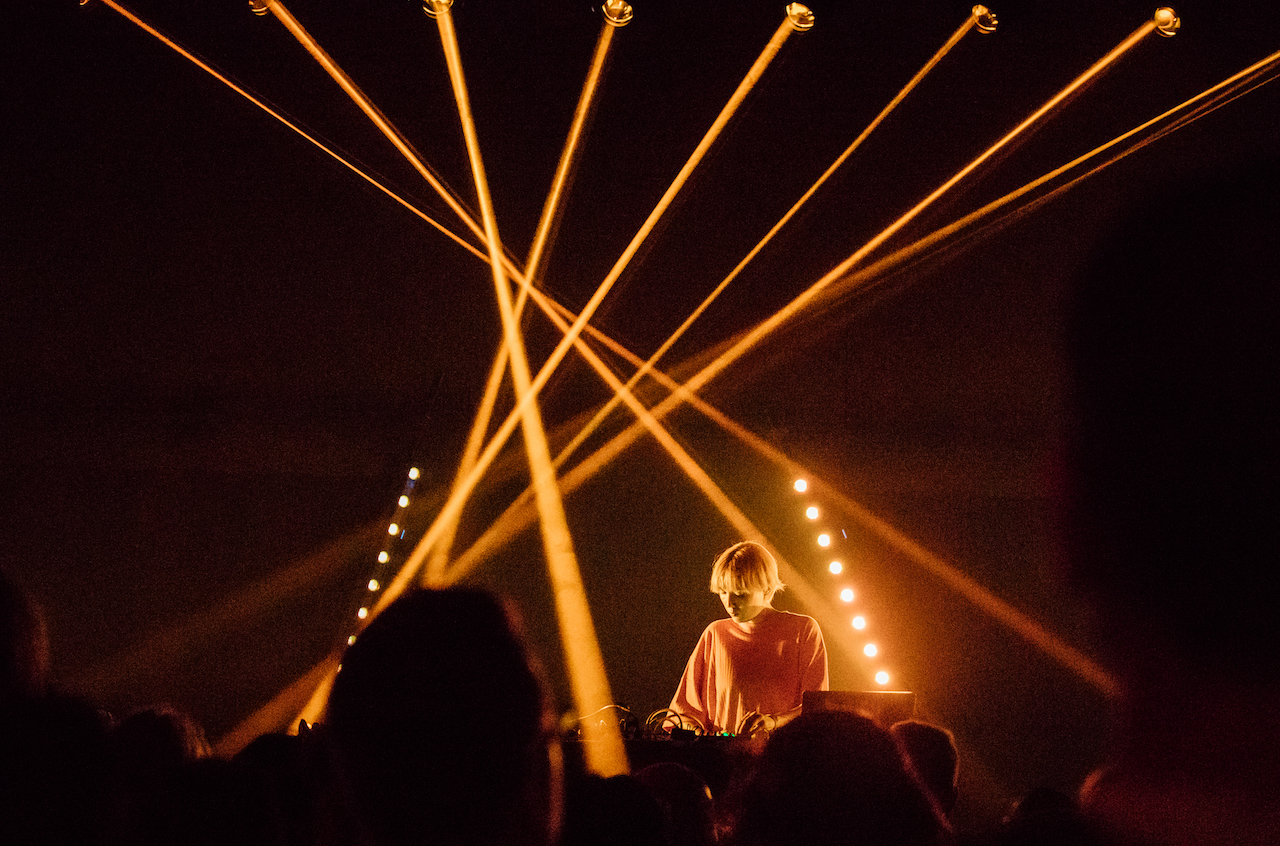 Priori Francis Latreille, whose set was among my most anticipated of the festival, closed Studio 2 after Beta Librae. As Priori, and in collaborative projects like ANF (with Dust-e-1) and Jump Source (with Project Pablo), the Montreal native has fleshed out a bright and playful sound that jumps between house, illbient, techno and more. Arguably the defining artist of the modern Montreal scene, his live set felt simultaneously out-there and down to earth, a mix of spacey synths and snappy rhythms. If Project Pablo was MUTEK's one-to-watch in 2016, Priori was its 2019 equivalent, a local gem in a sea of big names. Here was a reminder that MUTEK, as famous as it is for hosting establishment acts, has always been one of the best places for finding local artists who know how to make you dance.
Priori Francis Latreille, whose set was among my most anticipated of the festival, closed Studio 2 after Beta Librae. As Priori, and in collaborative projects like ANF (with Dust-e-1) and Jump Source (with Project Pablo), the Montreal native has fleshed out a bright and playful sound that jumps between house, illbient, techno and more. Arguably the defining artist of the modern Montreal scene, his live set felt simultaneously out-there and down to earth, a mix of spacey synths and snappy rhythms. If Project Pablo was MUTEK's one-to-watch in 2016, Priori was its 2019 equivalent, a local gem in a sea of big names. Here was a reminder that MUTEK, as famous as it is for hosting establishment acts, has always been one of the best places for finding local artists who know how to make you dance.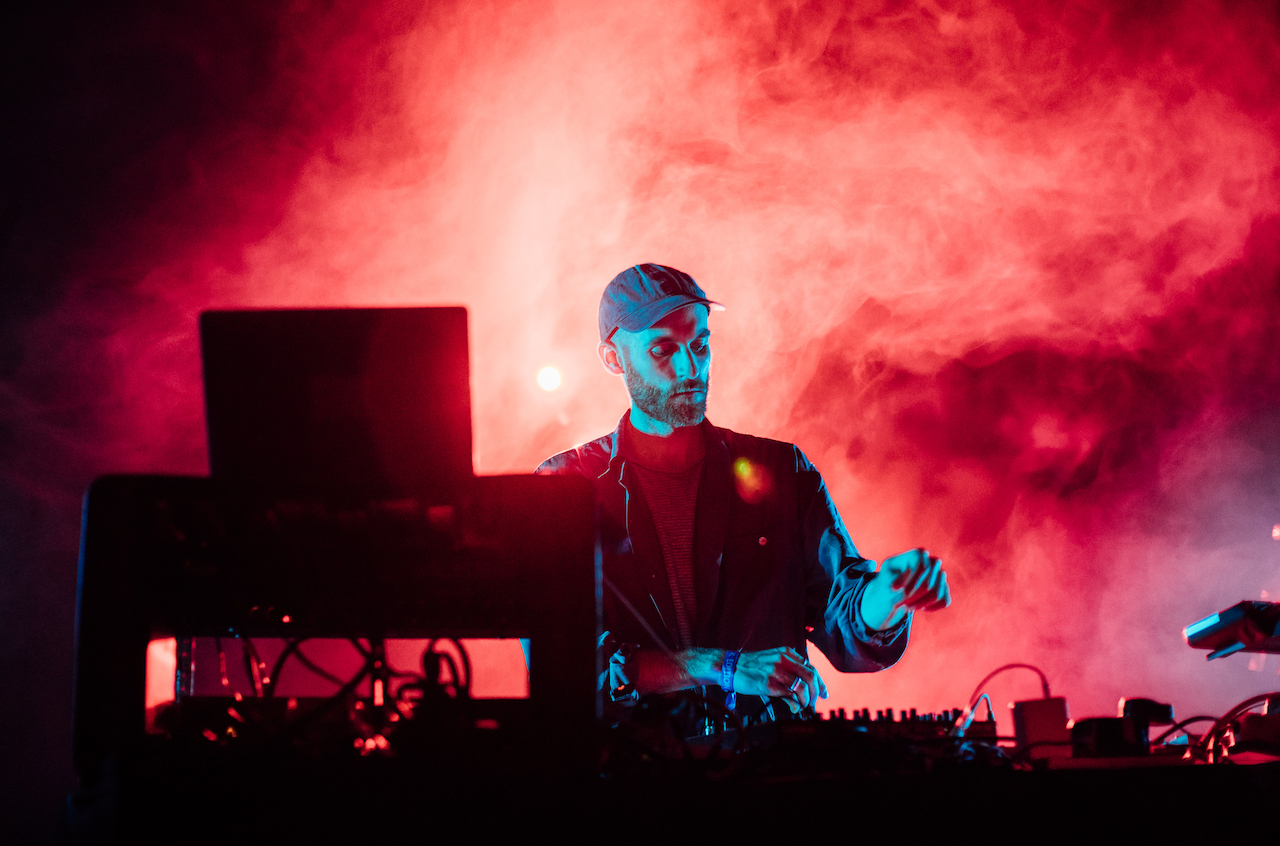 0303
0303